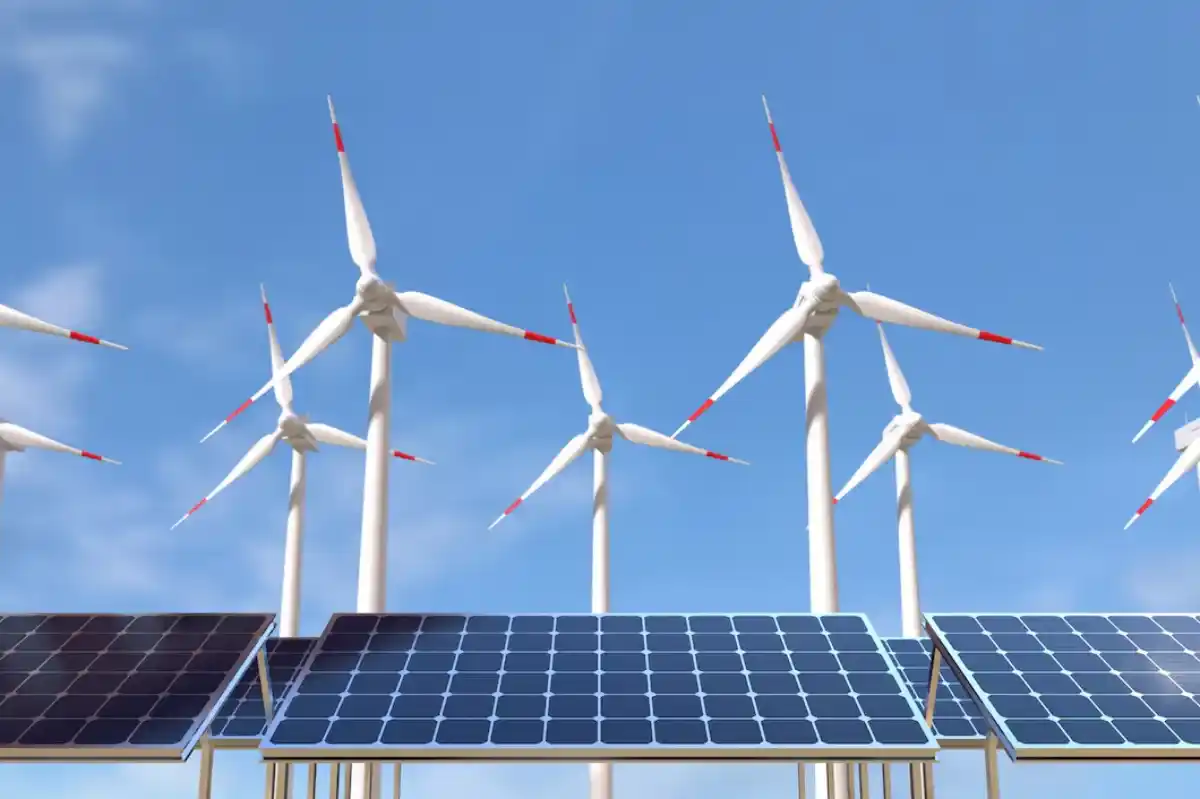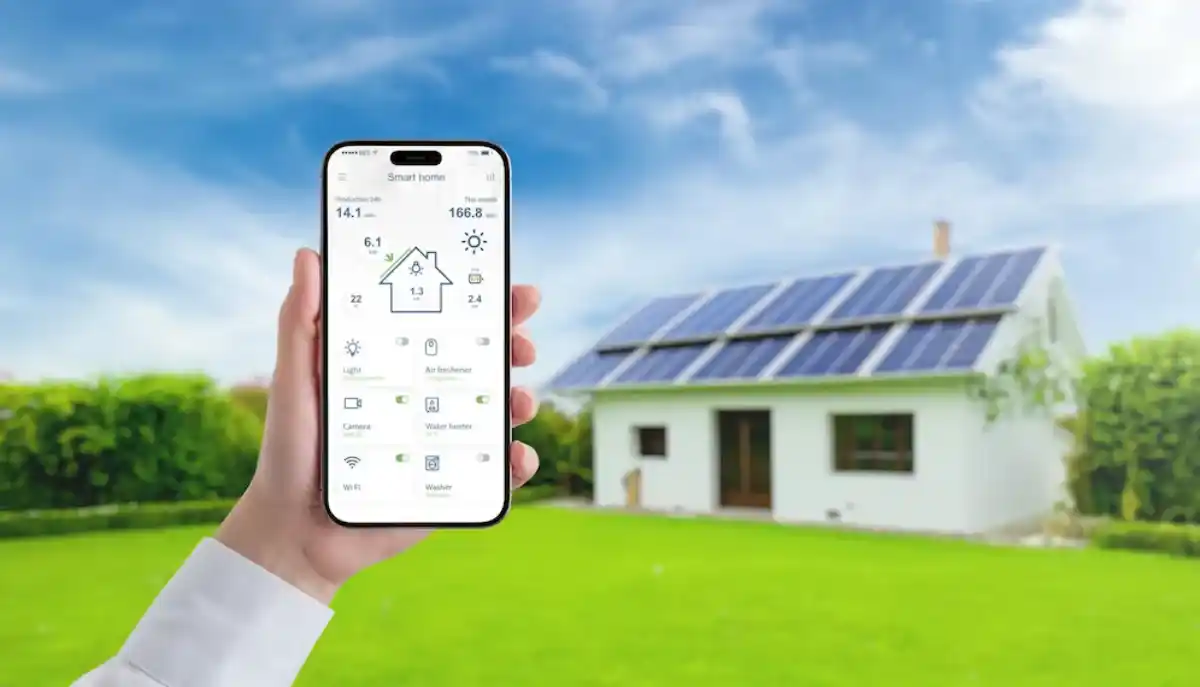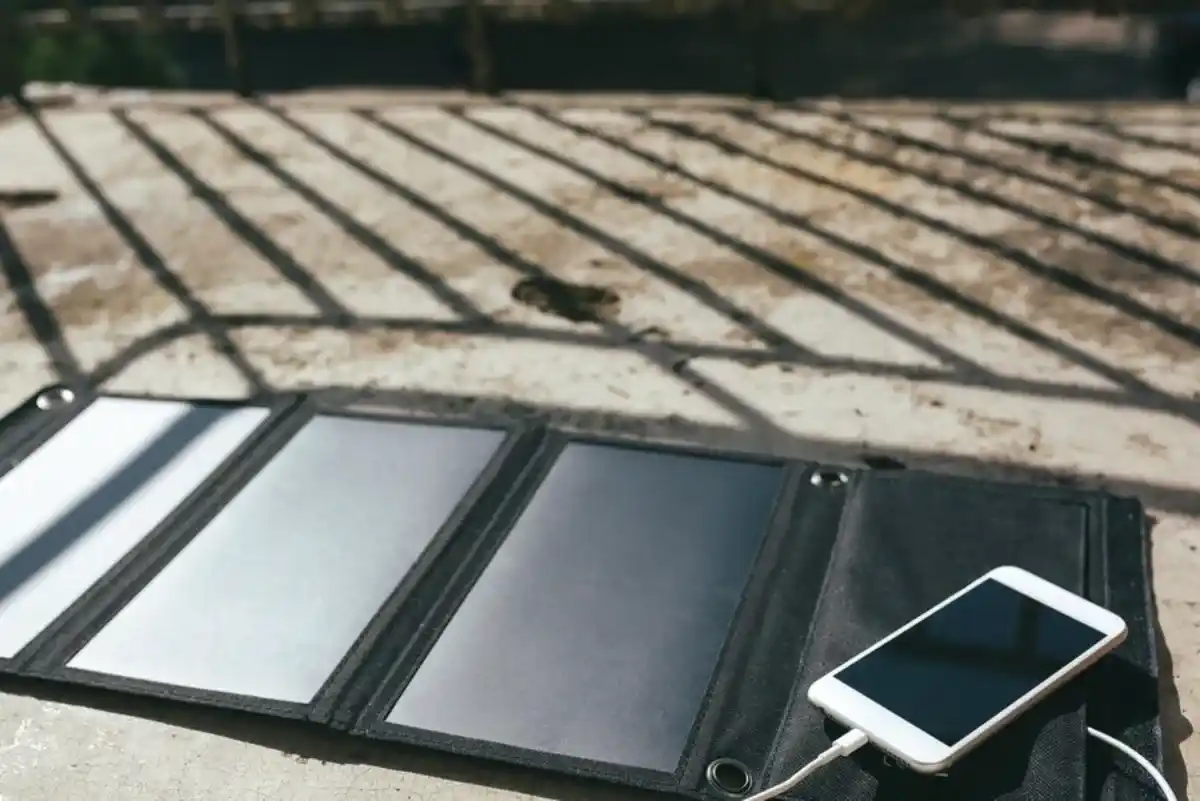The Technology Blog

The Rise of Sustainable Tech: Green Innovations
The demand for sustainable technology is rising fast due to climate change and environmental worries. Businesses, governments, and consumers seek new ways to reduce carbon footprints and create a greener future. Green tech trends are changing industries. They affect renewable energy and waste reduction. This helps us move toward eco-friendly living.
Eco-friendly gadgets are helping people add sustainability to their daily routines. Technology is making life greener. Solar-powered devices and energy-efficient appliances help us reduce our impact on the planet. This article looks at the newest green tech trends. It talks about how sustainable technology impacts industries. Eco-friendly gadgets are changing the future.

What is Sustainable Technology?
Defining Green Tech Trends
Sustainable technology means new ideas that cut down environmental harm. They also keep efficiency and performance high. These technologies focus on using renewable energy. They also aim to cut waste, use sustainable materials, and create energy-efficient designs. They help promote environmental responsibility.
Key Areas of Sustainable Technology
The field of sustainable technology spans multiple industries, including:
- Renewable Energy Solutions – Solar panels, wind turbines, and hydroelectric power innovations.
- Energy-Efficient Electronics – Smart home systems and LED lighting to reduce electricity consumption.
- Sustainable Transportation – Electric vehicles (EVs), hydrogen-powered cars, and improved public transit options.
- Eco-Friendly Gadgets – Devices designed with biodegradable materials and energy-saving technology.
- Waste Management Technologies – AI-driven recycling, compostable packaging, and circular economy innovations.

The Impact of Green Tech Trends on Industries
Renewable Energy and Power Generation
The push toward clean energy is at the forefront of sustainable technology. Solar and wind power are cheaper and more efficient now. This has led to more homes and businesses using them. Battery storage technology is improving. This makes renewable energy sources more reliable. Now, we can count on a steady power supply, even when production is low.
Countries around the world are putting money into renewable energy. The UK plans to reach net-zero emissions by 2050. Floating wind farms and transparent solar panels are changing how we use energy sustainably.
Smart and Energy-Efficient Homes
Eco-friendly gadgets in smart homes help consumers cut energy use. Some of the latest innovations include:
- Smart Thermostats – Devices such as Nest and Hive save energy by optimising heating and cooling.
- Energy-Efficient Appliances – Today’s refrigerators, washing machines, and dishwashers use much less electricity and water.
- Solar-Powered Smart Home Devices – Solar-powered security cameras, chargers, and outdoor lights are popular now.
- IoT-Integrated Energy Management – AI-driven home energy systems that monitor and reduce power usage.
The Future of Sustainable Transportation
Green tech trends in transportation are changing fast. There’s a big focus on electrification and alternative fuels. Some major developments include:
- Electric Vehicles (EVs) – Thanks to better battery tech, EVs now have longer ranges and charge faster.
- Hydrogen Fuel Cells – These are a great alternative to regular batteries. Hydrogen-powered cars make no emissions at all.
- Sustainable Aviation – Airlines are putting money into biofuels and electric planes. They want to cut down on their carbon footprints.
- Shared Mobility Solutions – Ride-sharing, bike-sharing, and electric scooters help cut urban traffic jams and lower pollution.
Waste Management and Circular Economy
Waste reduction is a crucial aspect of sustainable technology. New innovations in waste management are making recycling and reusability more efficient, including:
- AI-Powered Recycling Systems – Automated sorting of recyclables to improve efficiency and reduce contamination.
- Biodegradable and Compostable Materials – Packaging made from plant-based materials that decompose naturally.
- Upcycling and Reuse Initiatives – Companies are turning old electronics, clothes, and furniture into new items. This helps cut down on landfill waste.
- Zero-Waste Cities – Urban areas implementing policies to drastically cut down waste production.

The Role of Eco-Friendly Gadgets in Sustainable Living
Innovative Eco-Friendly Gadgets
Consumers are increasingly looking for eco-friendly gadgets that promote sustainability without sacrificing functionality. Some of the most exciting developments include:
- Solar-Powered Chargers – These devices let you charge smartphones, laptops, and more with renewable energy.
- Reusable Water Bottles with Built-in Purification – These smart bottles filter water while you’re on the move. They help cut down on plastic waste.
- Biodegradable Phone Cases – These cases are made from plant-based materials. They break down naturally over time.
- Wind-Powered Portable Generators – Small-scale wind turbines for campers and outdoor enthusiasts.
How Consumers Can Adopt Green Tech
People can help the environment by using green tech trends in their everyday lives:
- Switch to Energy-Efficient Appliances – Upgrade to LED bulbs and energy-saving appliances. This cuts down on household energy use.
- Use Renewable Energy – Installing solar panels or choosing green energy cuts carbon footprints.
- Opt for Sustainable Transport – Take public transit, ride a bike, or drive an EV to reduce emissions.
- Reduce E-Waste – Recycling old electronics and choosing sustainable alternatives prevents harmful waste accumulation.
Challenges and Future Prospects of Sustainable Technology
Current Challenges in Green Tech Adoption
Despite the rapid growth of sustainable technology, several obstacles remain:
- High Initial Costs – Many eco-friendly innovations need a big upfront investment, which makes them hard to access.
- Limited Infrastructure – Widespread adoption of EVs and renewable energy solutions requires better infrastructure.
- Consumer Awareness – Many people don’t know about eco-friendly gadgets. They may not realise their benefits or where to find them.
- Regulatory Hurdles – Government rules and industry regulations can help or block green tech adoption.
The Future of Green Tech Trends
Looking ahead, green tech trends will continue to shape industries and lifestyles. Innovations expected to drive the next wave of sustainable technology include:
- Next-Generation Solar Panels – More efficient, flexible, and affordable solar technology.
- Carbon Capture and Storage – Technologies that actively remove CO2 from the atmosphere.
- Advanced Battery Storage – Improvements in battery efficiency to make renewable energy more viable.
- AI and Smart Energy Systems – AI-driven solutions to manage and optimise energy consumption.
- Sustainable Fashion Technology – Innovations in textile recycling and biodegradable fabrics.
Green Tech Trends: How Sustainable Technology is Shaping the Future
The rise of sustainable technology is a crucial step toward a greener future. Tech advancements are guiding us toward a more sustainable world. Eco-friendly gadgets in smart homes and large-scale green tech in transportation and energy are key trends.
Innovation will drive the use of sustainable technology. Its success relies on industry support, consumer awareness, and government policies. The future of green tech looks promising. With ongoing progress, an eco-friendly society is possible.









